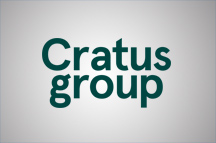“TikTok – sorry to be breaking into your usual, politics-free feed…” – the words of a Prime Minister (and party) with a limited understanding of the way social media and politics interact in modern Britain.
Trying to follow a weekend of being pilloried over the national service announcement with an explanatory social media post, the Conservatives’ first TikTok of the campaign was not only roundly rejected in the comments section, but furthermore betrayed a misconception about how the major social platforms work.
TikTok, Instagram, X and the ruins of Facebook can all be intensely political places – depending on the issue and the specific configuration of the individual user’s network.
What the Prime Minister missed is that, rather than being divided into political vs. apolitical parts of social media, almost every user of a major platform will be exposed to political content in some form over the course of a day, and in many cases will have their perception of the issue and the political parties shaped here, rather than through ‘traditional’ political media.
When Labour last left government in 2010, fewer than half of UK adults had a social media presence – compared with an overwhelming majority who do today. It’s become the most obvious cliché to point out we’re living in a social media age, but the impact on a governing party who have never experienced it before could be enormous.
In contrast to the days of MySpace and early Facebook, a Starmer administration will find the electorate’s views of it – particularly among young voters – dictated by trends on social media that the party can’t control, regardless of the strength of their own social content.
Already, even with Labour ascendent in the polls, between 10-15% of the under-35s are telling pollsters that they will be voting Green at the general election. Labour’s tangled mess of a position on the Gaza conflict has left it vulnerable on several flanks, and Keir Starmer has been attacked on TikTok and Instagram for his stance just as often as the Conservative government, despite having no executive power to affect the conflict. In different parts of the country, Labour’s record on planning or immigration may be similarly amplified on social platforms.
The first scandal of a Labour administration will tell a lot about how far this trend can go. In many European countries, the established centre-left parties have seen their hold on the youth vote hollowed out over time, and far from the ‘youthquake’ of the 2017 election, Labour could find the average age of its voter base climb upwards as young people’s disillusionment grows. Bloomberg recently wrote that Labour’s support is ‘broad but shallow’ – quite how shallow, only time will tell.












